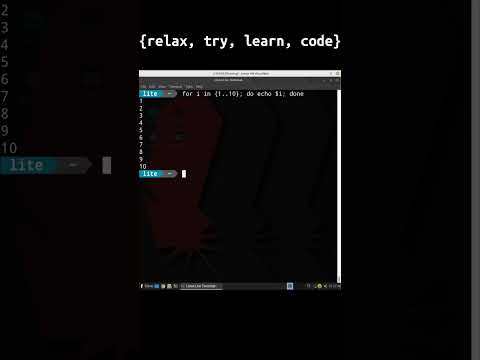A Day In The Life Of A Front End Developer
A Peek Inside a Front End Developer’s Day
Working as a front end developer can be a very rewarding experience. A front end developer is responsible for designing and developing user-facing web pages and applications. They ensure that site visitors have a pleasant and engaging experience. On a daily basis, a front end developer is responsible for translating code into effective user interfaces with fast loading times, making sure that the visuals are user-friendly, updating existing webpages and applications, and troubleshooting any technical issues.
Additionally, a front end developer’s day might involve collaborating with other developers, designers, and stakeholders to ensure that the website or application is meeting the needs of the business and the end users. They may also need to keep up with industry trends and technologies, attending conferences or webinars, and continually improving their skills to stay competitive in the job market.
Success Comes From Experience
To be successful as a front end developer, it’s important to have a strong understanding of HTML, CSS, and JavaScript, as these are the building blocks of web development. Experience with web frameworks such as React, Angular, Vue.js, or jQuery is also valuable, as is knowledge of user experience (UX) principles and design tools. Effective communication, problem-solving skills, and an attention to detail are also essential qualities that a front-end developer should have to thrive in their role.
Jack of All Trades, Master of None
Front end developers play a crucial role in creating visually appealing and user-friendly web applications. They work with a variety of technologies and collaborate with other stakeholders to ensure that web applications meet the needs of both businesses and end-users. With the increasing demand for web development skills, there are many opportunities for front end developers to grow their careers and make a meaningful impact in the tech industry.
Typical Tasks of a Front End Developer
Typical tasks that a front end developer must manage include developing and improving web interfaces, interpreting HTML and CSS code, testing and debugging webpages, and carrying out user interface design techniques. Additionally, they are responsible for establishing coding standards, creating and customizing webpages according to client needs and requirements, creating user tests, and monitoring website performance.
Apart from the mentioned tasks, front-end developers have many other responsibilities that they need to manage. For instance, they set up and execute responsive design practices to make websites or applications adaptable on multiple devices such as tablets, smartphones, and desktops. They may also create mockups and wireframes to give simple ideas to clients or design teams, guaranteeing that the final product meets everyone’s requirements.
Furthermore, a front end developer needs to stay up-to-date with the latest trends and technologies relevant to their work. They should have the skill to adjust to new standards and ensure that websites and applications function smoothly and efficiently for all users. Maintaining online security and keeping up with SEO practices are additional tasks that these professionals must perform to ensure that the website or application is in good condition.
Furthermore, front end developers are accountable for a plethora of tasks, including designing, enhancing, implementing, creating coding standards, testing, debugging, and monitoring website performance. Moreover, their crucial duties include adapting sites to be used on various devices, making them user-friendly, and ensuring that they comply with the most recent web standards. With this knowledge and skill set, front-end developers positively impact the experience and satisfaction of end-users while helping their organizations create successful online business objectives.
Challenges of the Role
Front end developers face a number of challenges. As technology advances, techniques and technologies are increasingly shifting. A front end developer must stay up to date with current trends and technologies and strive to keep their code updated and efficient. Additionally, they need to stay on top of any design changes and be able to quickly adapt to any feedback provided by the client.
Required Skillset
A successful front end developer requires an aptitude for programming, an eye for design, and an understanding of web development principles. They must be able to skillfully translate software designs into code and have knowledge of web applications, computer graphics, scripting, and animation. Familiarity with HTML, CSS, JavaScript, and other coding languages is also necessary.
In addition to the programming and design skills mentioned, successful front-end developers should have a thorough understanding of user experience (UX) principles and be able to translate those principles into their code and design decisions. This includes considering factors such as usability, accessibility, and user behavior when creating web interfaces.
Furthermore, front-end developers should have good communication skills and the ability to collaborate with other developers, designers, and stakeholders effectively. This is particularly important in larger teams where they may be working on different aspects of a project or interacting with different departments within an organization. They should be able to present their ideas clearly and be receptive to feedback.
Finally, staying updated on the latest web development trends and best practices is an essential aspect of being a front-end developer. This includes keeping up to date with new frameworks, libraries, and tools that may enhance their work and improve the user experience. By staying current with industry trends, front-end developers can make informed decisions that will help their projects succeed.
A successful front end developer requires technical skills in programming and design, an understanding of web development principles, familiarity with HTML, CSS, and JavaScript, UX design skills, effective communication and collaboration skills, and a dedication to staying current with industry trends and best practices. With this skillset, front-end developers can create engaging and successful web experiences for users and contribute to the growth and success of their organizations.
Typical Day in the Life
A typical day for a front end developer can involve a number of different tasks. They might begin their day with checking and responding to emails, followed by writing lines of code, debugging, and testing the webpages. A front end developer may then spend some time closely following user stories, creating prototypes, and reviewing any generated code. They may then spend some time refining the designs, updating existing pages, and addressing any technical issues or customer feedback.
Development Tools Used
A front end developer may use a number of development tools to streamline their work. These may include software such as Adobe Creative Suite, HTML and CSS editors, JavaScript libraries, integrated development environments, and command line tools. Additionally, they might also use various testing and debugging tools for web development.
Key Takeaways
To summarize, a day in the life of a front end designer involves staying up to date with current trends and technologies, writing lines of code, debugging, and testing webpages, refining designs, and updating existing pages. They must also be skilled in programming, have an eye for design, and possess an understanding of web development principles and coding languages. The development tools they use may include Adobe Creative Suite, HTML and CSS editors, JavaScript libraries, integrated development environments, and command line tools.
To Sum Up A Day In The Life Of A Front End Developer
A front end developer must possess an aptitude for programming, an eye for design, and an understanding of web development principles. They are responsible for maintaining and improving the user-facing web pages and applications, and use various development software such as Adobe Creative Suite, HTML and CSS editors, JavaScript libraries, and command line tools to streamline their work. On a daily basis, a front end developer may be required to debug and test webpages, refine designs, respond to customer feedback, and develop new webpages.








